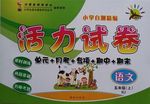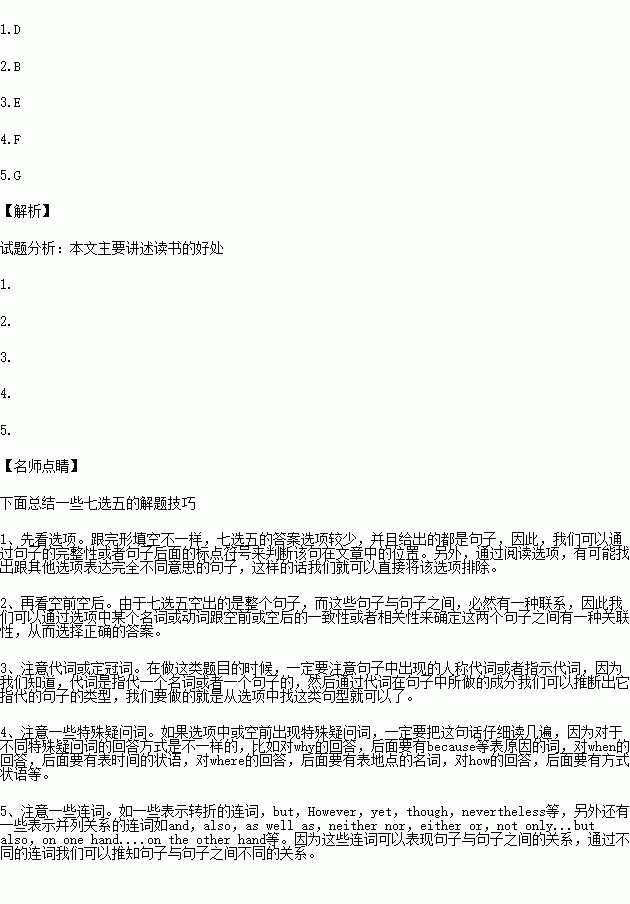题目内容
根据内容, 从对话后的选项中选出能填入空白处的最佳选项, 并在答题卡上将该项涂黑。选项中有两项多余选项。
Everyone can benefit a lot from reading books. The following is about various benefits of reading books.
1. Whenever you read something, you learn information that you wouldn’t have known. If you want to learn new words, reading books is a great way to enlargeyour vocabulary.
2. Similar to solving puzzles, reading books allows your mind to practice its processing skills. Going without books for too long will turn your mind into mess.
One of the primary benefits of reading books is its ability to develop your thinking skills. 3. Wherever you are faced with a similar problem in real life, your mind is able to put its mystery solving skills to a test.
The information in books can be referred to over and over again. For example, reading a cookbook allows you the chance to review the cooking steps whenever you need to. 4. Don’t even think about writing the information down because you may lose the paper sooner or later.
These are just some of the wonderful benefits of reading books. 5. If you can’t even go outside, you can download free e?books online and read them on your computer. That way, you can see how useful reading can be for yourself.
A. You can improve your memory by reading.
B. Reading keeps your mind in good condition.
C. Reading books can make you become confident.
D. Reading books provides you with new knowledge.
E. Reading mystery novels, for example, trains your mind.
F. Following the steps from a cooking video will be difficult.
G. Why don’t you drop into a bookstore and pick a book up?
 活力试卷系列答案
活力试卷系列答案 课课优能力培优100分系列答案
课课优能力培优100分系列答案
